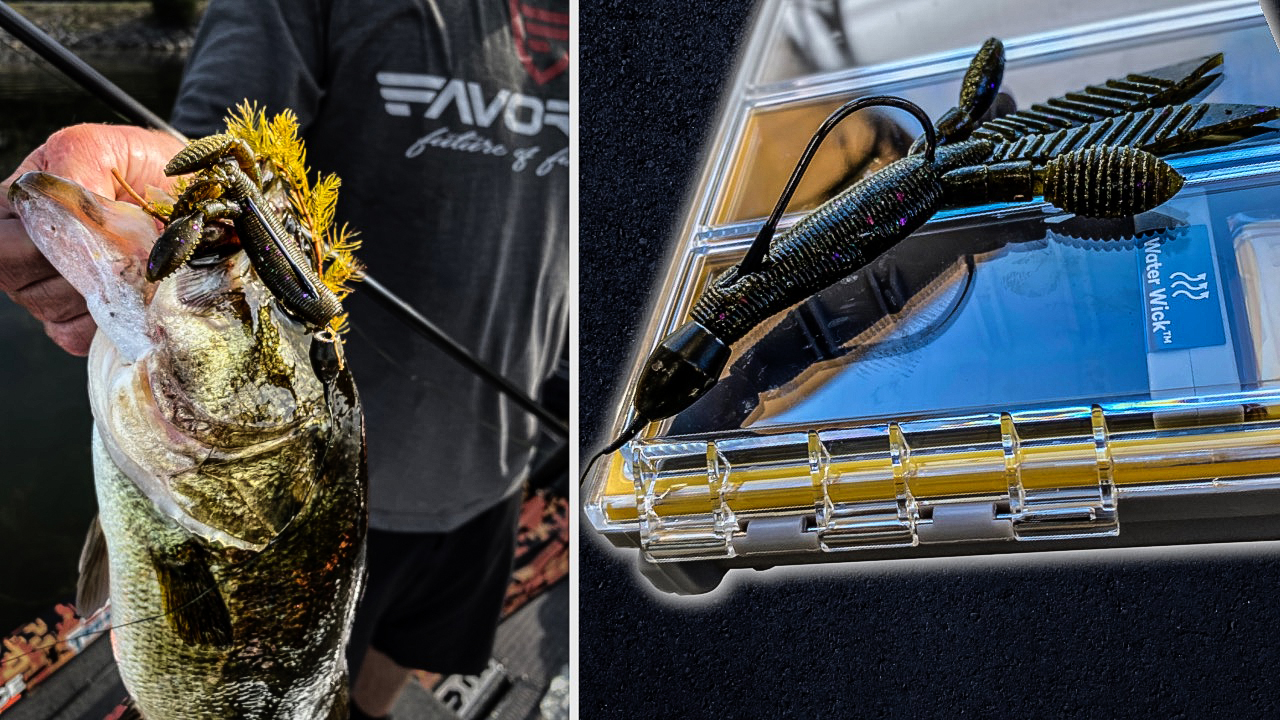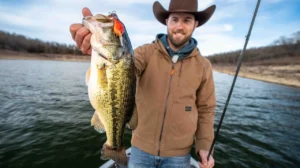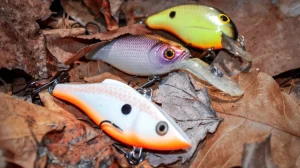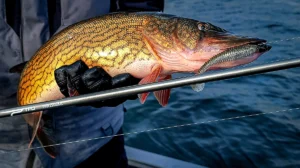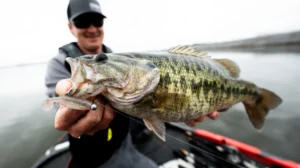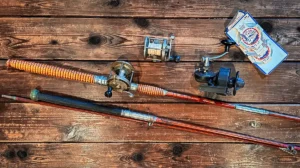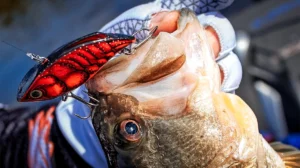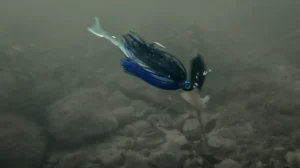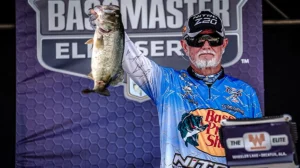Fletcher Shryock loves fishing for bass buried in grass mats with the flipping and pitching techniques. He shares some overlooked pointers, such as the 3 best times of the day to catch bass in mats, how to visually identify the best grass, key tackle for punching, how to properly fish your flipping setup, and overlooked areas that can get you more bites.
FEATURED TACKLE
- PLASTIC – Yamamoto Flappin’ Hog, color – Green pumpkin with purple flake
- HOOK – TroKar Monster Flipping Hook, TK 135, 5/0
- LINE – Vicious No-Fade Braid, 40-pound
- ROD – Favorite FS Series Balance Rod, 7′ 11″ Moderate Action (currently unavailable)
- ROD – Favorite Balance Casting Rod, 7’4” Heavy Mod. Fast (similar option)
Shryock’s 7 tips to better punching success on grass lakes:
-
- Fish during bite windows. Fletcher discusses the 3 best bite windows for punching mats: 1) around sunrise for the first couple of hours is usually the best to score on big bass in the mats, 2) there’s usually a secondary midday bite when it’s hot and sunny, and 3) in the low-light evening period.
- Visually identify the best habitat. Shryock looks for the most prominent clumps of surface mats. Like a tree’s canopy, sprawling surface vegetation usually means a combination of space and abundant shade underwater. Focus your efforts on the thick stuff.
- Feel for the best habitat. Step 2 is seeing, and step 3 is feeling with your line and a sensitive rod. Shryock explains the importance of “the vertical drop.” Don’t spend a lot of time dropping your flipping setup down the stalks of grass. Instead, try dropping in the middle of a mat to put your flipping setup in the middle of the house where bass have room to maneuver. So how do you determine a productive drop? Penetrate the canopy and feel for the bait dropping unobstructed — this indicates a good pitch where bass can find your lure.
- Stay in hookset position. Don’t be caught with your rod straight toward the fish or out of a good hook set position. Maintain a rod angle so you don’t get tight-lined by a hungry bass. They need a second to get the bait in the back of their mouth, so a rod angle that forces you to drop the tip a little before the hookset improves hooking percentages.
- Tackle the forest. We get it; punching mats across expansive grass flats is daunting and a lot of work too. Shryock delivers some powerful rationale for “fan pitching” productive areas deep in expansive grass flats and away from crowds.
- Work the water column. So do you make a pitch and immediately feather the underside of a mat? If you’re fishing in water 7 feet or under, Shryock lets the flipping presentation drop to the bottom. He explains that a lot of bites happen in the vicinity of the bottom. From there, he then focuses mid-water column or just under the mat.
- Use a slower action rod. Shryock has stopped using pool cue flipping sticks. Instead, he favors heavy power rods with a moderate taper. A slower action rod remains under load more consistently than a stiff rod with a fast or extra-fast taper. A bent rod keeps the hook under pressure, which prevents a slack line that leads to lost fish.


